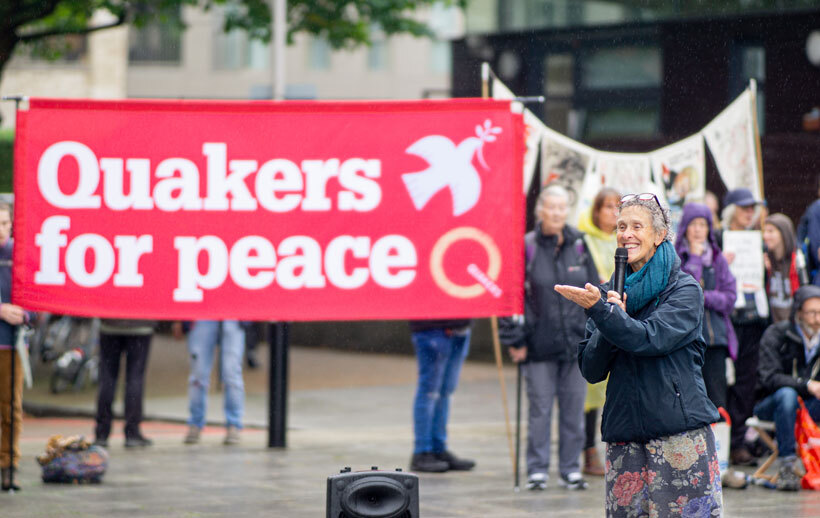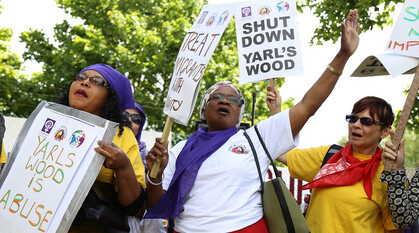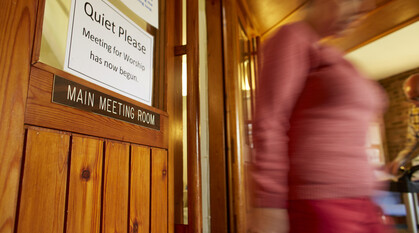To protest is to participate
The right to protest is under threat. Oliver Robertson explains why it's important and how we can defend it.

Quakers have been around for almost 400 years. From the very start we've spoken up and out against injustice. Protest is vital to us because it's one of the ways we put our faith into action. We speak out when God, the Spirit, our conscience – call it what you will – tells us we cannot stay silent.
Protest is about peace and truth
Quakers are challenged and inspired by a collection of insights called Advices and queries. One of these urges us to “respect the laws of the state but let your first loyalty be to God's purposes". For many Quakers, this justifies taking nonviolent direct action to call for change. But nonviolence is key. Because we value every person, our pressure for change – however urgent – should avoid harm. For Quakers, protest is about peace.
Protest is also about truth and integrity. An essential part of nonviolent direct action is taking responsibility for your actions. For example, you don't just block a road. You aim to be held accountable for your civil disobedience – to make your case and have your day in court. That's what makes it fundamentally different from conventional criminal behaviour, where the aim is not to get caught and face the consequences.
Why protest is worth defending
Protest is a way of participating in public life. Few of us have access to the corridors of power, are wealthy or well connected, so protest is how we make our voices heard.
That's why some of the legislation now going through parliament – legislation that severely restricts the right to protest, changes the rules around elections, and limits the ability of courts to scrutinise government actions – is both dangerous and short-sighted. It's dangerous because it closes down the space for engaging with the powerful, for holding them to account. And it's short-sighted because people won't stop caring just because the government tries to silence them.
CIVICUS, a global alliance that monitors civic freedoms, recently updated its watch list of countries where civic space is shrinking fast. It features four countries: Afghanistan, Belarus, Nicaragua, and the UK. This is not a list any of us want to be on.
The freedom to protest is central to a healthy, vibrant democratic society. The alternative, where people daren't speak out for fear of the consequences, is a country run through fear and coercion.
Take action to protect the right to protest
We're deeply concerned by the erosion of civil society. It's why, in October, Quakers in Britain joined Amnesty UK and others in a week of action to Stop the Rights Raid. Across Britain, people urged their MPs to defend human rights. On 11 October I appeared on the BBC's Sunday Morning Live to talk about the right to protest – watch the clip below.
We've focused our recent campaigning on the Police, Crime, Sentencing and Courts Bill as the biggest current threat to the right to protest. To take action, please write to your MP ahead of the bill returning to the House of Commons later this year (probably in December). Ask them to encourage the government to make concessions to protect the right to protest. You can use our briefing on the bill (Word) and our guide to contacting your MP (PDF). The briefing also suggests other ways you can take action against the bill.
The freedom to protest, to voice opposition, is a human right we cherish. And like all precious things, we need to nurture and protect it, with words or peacefully on the streets.


